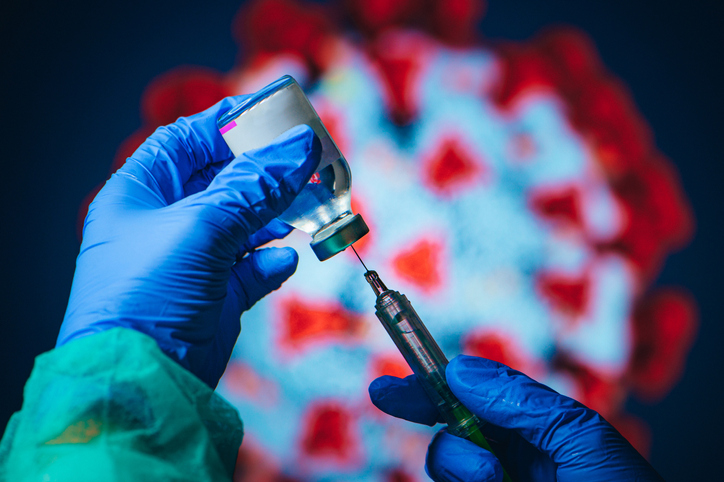

New rules for the acquisition of Covid-19 vaccines by the private sector in Brazil
New legislation allows for the acquisition of vaccines by the private sector, states and municipalities and set rules for civil liability
Subjects
On March 10, 2021, Brazil’s President signed Law No. 14,124/2021 and Law No. 14,125/2021, which relate to the acquisition and application of Covid-19 vaccines in the country’s immunization strategy.
The two new acts address the following questions:
- Law No. 14,124/2021
Establishes exceptional measures regarding the acquisition of vaccines and supplies, the contracting of goods and logistics services, information and communication technology, social communication, advertising and training regarding Brazil’s National Operationalization and Vaccination Plan (PNOV) for Covid-19. - Law No. 14,125/2021
Provides for rules of civil responsibility resulting from adverse post-vaccination events and the conditions for the acquisition and commercialization of vaccines by private entities.
The major updates for each piece of legislation are described below:
Acquisition of Covid-19 vaccines by States and Municipalities
In contrast to the President’s veto position regarding the legal mechanisms of Provisory Act No. 1,003/2020, Law No. 14,124/2021 was enacted authorizing the acquisition, distribution and application of vaccines by states, the Federal District and municipalities.
Brazilian states will be able to undertake these activities either in regard to registered vaccines, or those with Emergency Use Authorization (EUA) or Exceptional Authorization for Importation and Distribution (EAID). However, this is conditional on the absence of the federal government’s timely acquisition and distribution of sufficient Covid-19 vaccines for priority groups according to the PNOV. By way of background, priority groups currently include health workers, people over the age of 60, indigenous, quilombola and riverine communities, incarcerated populations and prison system workers, people with existing medical conditions, permanent disabilities or in situations of homelessness, education workers, security and rescue workers, as well as those in the military and transportation industries.
Contracting goods and services and updating information
The new law also establishes special rules for the direct and indirect public administration to contract goods and services necessary for carrying out vaccination programs. In the specific case of contracts for purchasing vaccines – either before or after the product’s registration or EUA via the National Health Regulatory Agency (Anvisa), there is a provision for establishing special clauses considered indispensable to the execution of the contract. Examples include confidentiality clauses, the possibility of bringing forward payment – even with a loss on the anticipated value and the hypothesis of non-imposition of penalties on the contractor.
Furthermore, updated information about public contracts concerning the Covid-19 immunization strategy must be made publicly available within five days of a contract being signed. The minimum requirements include:
- The name of the contractor (local or foreign company);
- Contractual deadlines, values and respective processes for acquisition or contracting;
- The law that authorizes the direct contract or the resulting contract statement;
- The total value of the contract, payment instalments, the amount payable and available or blocked credit, if it exists;
- The quantity of vaccines delivered or provided to each federal entity during the performance of the contract; and
- Registered price records which the contract is based on, if they exist.
Rules for submitting EAID requests
On March 10th, 2021, the Anvisa Collegiate Board approved Collegiate Board Resolution (RDC) No. 476/2021, establishing EAID submission procedures and prerequisites for the federal government, states, Federal District and municipalities to import and distribute Covid-19 medication and vaccines within the scope of Law No. 14,124/2021. Import operations by public consortia still depend on a normative ruling to be published by Anvisa.
RDC No. 476/2021 allows for the unprecedented importation of products that Anvisa has not granted either sanitary registration or EUAs, so long as they have been registered or have authorization for emergency use from at least one of the following international authorities:
- Food and Drug Administration (FDA), from the United States of America;
- European Medicines Agency (EMA), from the European Union;
- Pharmaceuticals and Medical Devices Agency (PMDA), from Japan;
- National Medical Products Administration (NMPA), from the Republic of China;
- Medicines and Healthcare Products Regulatory Agency (MHRA), from the United Kingdom;
- Federal Service for Surveillance in Healthcare, from the Russian Federation;
- Central Drugs Standard Control Organization (CDSCO), from India;
- Korea Disease Control and Prevention Agency (KDCA), from the Republic of Korea;
- Health Canada (HC), from Canada;
- Therapeutic Goods Administration (TGA), from Australia;
- Administración Nacional de Medicamentos, Alimentos y Tecnología Médica (ANMAT), from the Republic of Argentina;
- Other certified foreign sanitary authorities with international recognition, with a maturity level IV determined by the World Health Organization (WHO) or by the International Council for Harmonization of Technical Requirements for Pharmaceuticals for Human Use (ICH) and the Pharmaceutical Inspection Co-operation Scheme (PIC/s).
For this purpose, the medicines or the vaccines imported must comply with the following requirements:
- Submission of a dossier so that Anvisa may concede an EAID in up to seven days. Anvisa is authorized to require that additional due diligence be carried out that complements and clarifies data regarding the product’s quality, efficiency and safety. In the absence of a technical evaluation report from an international sanitary authority, Anvisa will have 30 days to make a decision;
- Electronic petitioning for the importation and approval of the respective Importation License (LI);
- Conclusion of phase three clinical trials, or otherwise provisory results in one or more clinical trials;
- Specific indication for treating or preventing Covid-19;
- Exclusive destination for use in public health programs until the PNOV-defined priority groups have been completely vaccinated;
- Any product batches provided must comply with the conditions approved by the relevant international sanitary authority;
- Notification of major adverse events to Anvisa within 24 hours via the VigiMed or e-SUS Notifica systems.
Acquisition of Covid-19 vaccines by the private sector
After an extensive debate about the possibility of the private sector acquiring Covid-19 vaccines, Law No. 14,125/2021 was published expressly authorizing the purchase once the objective criteria have been met.
According to the new law, legal entities under private law can acquire Covid-19 vaccines authorized by Anvisa – meaning products with sanitary registration, AUE or EAID – as long as they are then entirely donated to Brazil’s National Health System (SUS). Once the vaccination process for the PNOV-defined priority groups has been completed, the private sector will be able to purchase, distribute and administer the vaccines independently if:
- Vaccines are administered by health service providers with proper licensing for injectables;
- The doses are given free of charge;
- Half of the total amount is given to the SUS.
Companies that opt to acquire Covid-19 vaccine doses will also need to provide detailed and updated information about purchases, donations and the application of vaccines to the Health Ministry. According to the version approved by the National Congress, this data should be published by the Health Ministry within 48 hours of the reported data being reported. This mechanism, however, has been vetoed.
According to RDC No. 476/2021, the importation rules for medicines and vaccines by the federal government, states, the Federal District and municipalities also apply to legal entities governed by private law. Additional requirements can be established through normative rulings to be published by Anvisa.
Civil liability for adverse events
As long as the Public Health Emergency of National Concern (Espin) is in effect, Law No. 14,125/2021 expressly authorizes the federal government, states, the Federal District and municipalities to assume any civil liability resulting from any adverse events of Covid-19 vaccinations, provided that Anvisa has properly authorized these products.
In contrast to the assumption of liability, the federal government, states, the Federal District and municipalities are all permitted to provide guarantees or contract national or international private insurance policies to cover the risks resulting from post-vaccination adverse events.
For more information regarding applicable regulations for Covid-19 vaccines, contact Mattos Filho’s Life Sciences and Healthcare practice area.
*With the cooperation of Camila Miranda Amaral.


